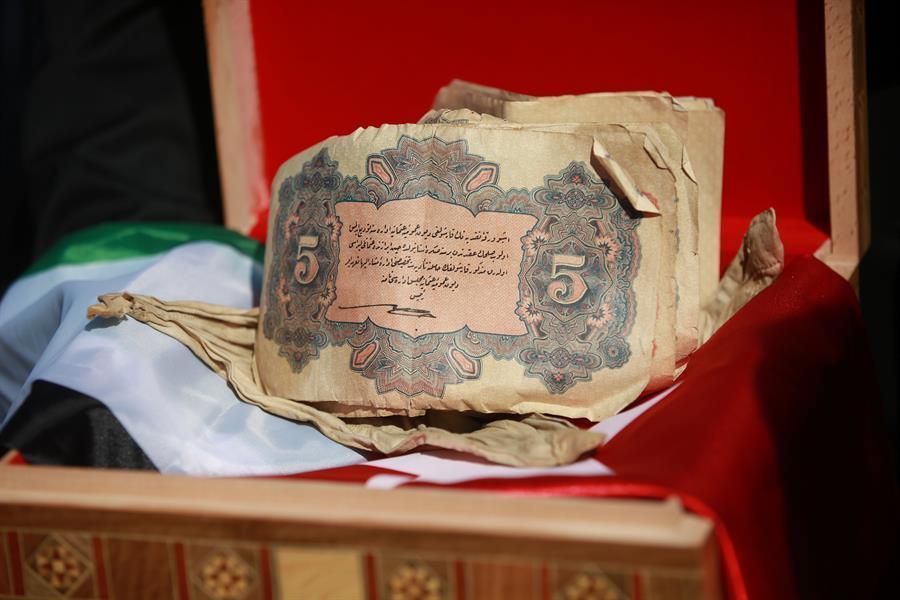
A small bag of money entrusted to a Palestinian family more than a century ago by an Ottoman soldier fighting in World War I has been handed over to the Turkish authorities in a ceremony.
An Ottoman soldier serving on the Palestinian front entrusted a rag to merchant Rushdi Efendi in which there were several Ottoman-era bills varying from half, one and five liras which are roughly equal to 140,000 liras ($14,400) in today’s currency.
Throughout his life, the merchant, who runs a shop in the West Bank city of Nablus, kept his promise for the unknown soldier, waiting for him to come back to give the money back to him.
After the merchant died, his nephew, Ragheb Hilmi Al-Alul, continued his uncle’s promise and has kept the banknotes of the soldier for over a century to this day despite the collapse of the Ottoman Empire in 1918.
Meticulously preserved by the Alul family for almost 106 years, the rag with the money inside of it was eventually delivered to Ambassador Ahmet Rıza Demirer, Turkish consul-general in Jerusalem, with a ceremony.
Palestinian Deputy Foreign Minister Amal Jadou, Nablus Governor Ibrahim Raman and Nablus Mayor Iyad Halaf also attended the event where both the Turkish and Palestinian national anthems were sung.
At the ceremony, the Alul family handed over the soldier’s trust to Demirer with a box containing the Turkish and Palestinian flags.
Speaking after the event, Demirer said the trust bears witness to the common history and the events of the last hundred years.
“This trust shows that it is a duty of honor for us to protect our unity beyond our brotherhood,” he noted, promising it to be a symbol of friendship and common history.
The Ottomans ruled Palestine from 1516 until 1917 when they were forced out by the British. Until the fall of Jerusalem, the Ottoman military saw a total of 25,000 casualties, including the wounded and captives.
Stressing that the Alul family is a very respected family in Nablus and its environs, the envoy thanked them for maintaining the Ottoman soldier’s trust more than a century.
Recalling that a direct line was established between the Turkish and Palestinian authorities for the delivery of the money after it made national headlines, Alul asked for the banknotes to be kept in a museum.
The signature of Ottoman Sultan Mehmet Reşad can be seen on the top-left of the bills, and Giesecke & Devrient, the print house that issued the bills, is on the bottom-left.